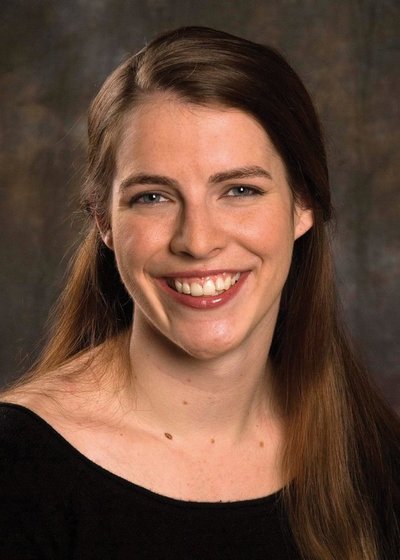May 31, 2007
Jerusha Achterberg
As strange as it seems, being a poor dance student has made Jerusha Achterberg a better classroom teacher.
“What makes me teach the way I do is that I also take dance classes and I’m appalling, really bad. Dance is very difficult for me, so it gives me an appreciation for students who just don’t get a complex subject such as hominid evolution,” said Achterberg, a doctoral student in biocultural anthropology and a recipient of one of this year’s Excellence in Teaching awards.
“Remaining a student is a huge help in understanding how it feels to be learning difficult material and not talking down to your students. Hominid evolution is hard to understand at the introductory level. As an instructor you have to learn how to teach while being true to the field and yet be open to all students and their beliefs and ideological differences,” she said.
Achterberg credits her desire to teach to a pair of instructors who took an interest in her. She remembers being a shy ninth-grader who had an Earth science teacher who convinced her that she could succeed.
“By today’s standards he didn’t have a good teaching style. He would yell, scream and pound the table,” she said. “But he took an interest in students, and he started me on a life trajectory that would lead me to teaching.”
As an undergraduate student at Pennsylvania State University she took an introductory summer course in chemistry and recalled that a teaching assistant didn’t show up for scheduled office hours on a Friday before the Fourth of July. The instructor happened to come by, called the situation unacceptable and dropped everything to hold office hours himself.
“Both of these were teachers who had high expectations, very high expectations, so students either loved or hated them. I learned if you have high expectations people will live up to them,” said Achterberg.
She juggles her teaching with her own studies and research. She is completing work on a master’s degree in public health in epidemiology and has begun work on her doctoral dissertation, which will involve developing mathematical models of tuberculosis transmission.
Teaching, she said, helps keep her grounded and breaks the isolation of doing research. Much of what she teaches first requires students to do a lot of memorization, but her goal is to have her students be able to master the information and use it independently.
She feels her responsibilities also include teaching students how to do such things as preparing a speech and putting together a scientific poster.
“When I first got here I was frequently told that the students weren’t that good. But I have been impressed at how students can grow and how they can perform. There are exceptional students here who are willing and able to achieve everything I’ve asked,” Achterberg said.
Her style of teaching certainly has a positive impact on her students. One of them wrote in nominating Achterberg for the excellence in teaching award:
“I left her office with an epiphany. I knew I’d gained an academic ally, someone who explained complex concepts in understandable terms, and who really cared whether students grasped the material. I believe that good teachers are those who expect great things from their students, but the best teachers — like Jerusha Achterberg — teach their students to expect great things from themselves.”

